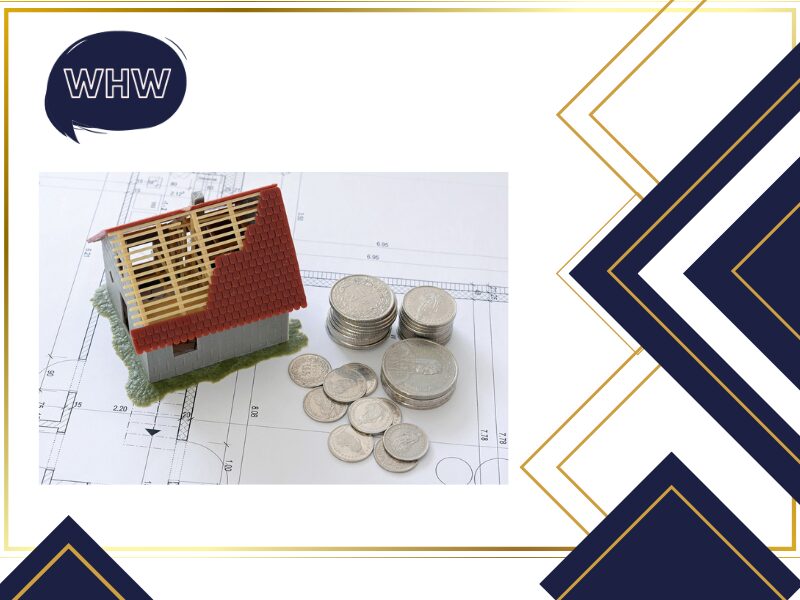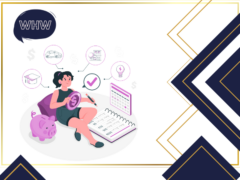How to build credit?

Having good credit is essential for taking advantage of many financial options. It enables you to obtain financing on advantageous terms, which results in cheaper interest rates and greater credit limits.
A high credit score can also lead to lower insurance costs and a better chance of getting approved for rental accommodation. In certain instances, acceptance for utility services depends on having good credit.
Regardless of your present credit situation, there are efficient ways to quickly raise and establish your credit score.
You can get the information and strategies you need to create or improve your credit as soon as possible right here.
How fast is credit building possible?
A number of variables affect how quickly you can establish credit, including your present credit score and the tactics you use. Setting a target score and comprehending the rationale behind it are essential.
Within a few months, you can observe little gains in your score by:
- Completing payments on schedule.
- Maintaining low credit card balances.
- Increasing the variety of your credit accounts.
But it takes time and constant work to establish a strong credit history. It happens gradually. Though good changes may appear relatively fast, a high credit score usually takes years of responsible credit conduct. It may take longer to recover from significant losses like bankruptcy or debt defaults.
Ways to build credit quickly
Building credit, much like learning any new skill, requires time, practice, and education. However, there are strategies that can expedite the process, with some showing results in a single reporting cycle.
Understand the concept of credit
To effectively build credit, it’s essential to understand the basics. Credit is the ability to borrow money or make purchases with the promise to repay the lender, usually with interest. This foundational concept is key to good credit management. Before implementing any strategies, familiarize yourself with:
- Credit recovery.
- Credit score ranges.
- Factors that affect your credit score.
- Reporting essentials.
- Responsible credit use.
Contest errors on credit reports
Your credit score can be considerably lowered by errors on your credit report. Maintaining your creditworthiness and proper financial records depends on fixing these errors.
Examine your credit report in detail from each credit bureau first. To bolster your claim, gather supporting paperwork such as creditor letters or invoices. Send a letter or use the credit bureaus’ online dispute resolution tools to submit a dispute.
You can go to the three main credit bureaus’ online dispute centers:
- Credit disputes on Equifax.
- Online disputes on Experian.
- TransUnion Conflict Resolution Center.
Following submission, the credit bureau will get in touch with the lender or creditor in charge of the data to look into the inaccuracy. Your credit record will be updated by the credit bureau if the error is verified.
Opening an account on a credit card
Getting a credit card is a good way to start developing credit. Building a good credit history requires using credit cards responsibly, which includes keeping balances low and paying bills on time.
Secured credit cards are a good choice for people with bad credit or no credit history. A security deposit, usually equivalent to the credit limit, is required for these cards. The issuer notifies the credit bureaus of your on-time payments in exchange for a nominal yearly fee.
Your credit score can temporarily drop when you apply for a new credit card because of the inquiry. Read also: How to choose the best credit card according to your profile.
Utilize a credit-builder loan
A credit-builder loan is tailored to assist individuals with limited or poor credit history in establishing credit through consistent, punctual payments. When you take out a credit-builder loan, the lender secures the loan amount in a savings account or certificate of deposit (CD) as collateral. You then make monthly payments toward the loan, which are reported to the credit bureaus.
After successfully paying off the loan, you gain access to the funds held in collateral, and your history of on-time payments is reflected positively on your credit report, potentially enhancing your credit score.
Register as an approved user
Getting approved to use someone else’s credit card is a good way to establish credit. The payment history of the principal cardholder can be utilized to build your own credit profile.
The primary cardholder adds your name to their credit card account when you are added as an authorized user. You are given a card that is connected to the main account and lets you make transactions. Payment obligations, however, continue to rest with the primary cardholder.
The account history of the principal cardholder may appear on your credit report, which could raise your credit score. Because the principal cardholder takes responsibility and there is usually no hard query on your credit record, this method usually does not negatively impact your credit score.
Ask for a credit limit increase
Asking for a bigger credit limit is one approach to rapidly raise your credit score if you already utilize revolving credit, such as credit cards or lines of credit. Raising your credit limit can help you improve your credit score by lowering your credit use ratio overall.
Generally speaking, your account must be in good standing in order to be eligible for an increase in credit limit. Although each lender may have their own set of requirements, accounts with low balances or paid-off balances are generally more likely to be granted an increase.
Keep different kinds of accounts
The process of establishing credit can be sped up by having a variety of credit accounts. Nonetheless, the advantages of having several accounts are only felt when they are well maintained and not overused.
Think about including a variety of credit kinds, like:
- Vehicle loans.
- Credit histories.
- Mortgages.
- Individual credit lines.
- Student loans.
Taking good care of multiple credit accounts shows that you can handle various kinds of financial responsibilities, which raises your credit score. Additionally, diversifying your credit portfolio helps you to adjust to fluctuations in the economy. Similar to managing a varied investment portfolio, having alternative options might help you retain financial stability if one sort of credit becomes less favorable.
Make more payments than the minimum
For credit accounts, there is a minimum payment obligation for each billing cycle. Paying beyond this minimum amount, however, can improve your credit score while preserving the integrity of the account.
Paying more than the minimum balance will hasten account payback and lower total interest accumulated over time. Complete account payoffs can raise your credit score considerably. Potential prepayment penalties, or costs associated with paying off a loan or debt before its agreed-upon period, should be avoided. It’s crucial to thoroughly examine these expenses while looking into new lending possibilities.
Next actions
Credit building is a journey that requires perseverance, attention to detail, and wise choices. With your newfound ability to build credit rapidly, stick to your budgetary objectives. Continue to manage your credit responsibly, keep a careful eye on it, and, if necessary, seek professional advice. You’re getting closer to reaching your financial goals with every constructive step you take.
Related content

Saving or Investing: Which is the Best Option?

The U.S. Dollar A Journey Through Its History

How Financial Education Can Help Avoid Excessive Debt

What is Revolving Credit?

How to Set Financial Goals for the Future
